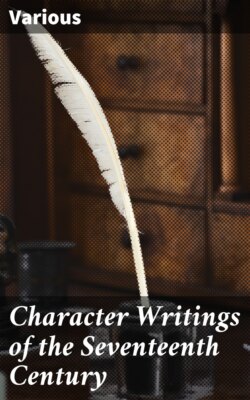Читать книгу Character Writings of the Seventeenth Century - Various - Страница 10
На сайте Литреса книга снята с продажи.
THE TRUE CRITIC.
ОглавлениеTable of Contents
A creature of a most perfect and divine temper: one in whom the humours and elements are peaceably met, without emulation of precedency. He is neither too fantastically melancholy, too slowly phlegmatic, too lightly sanguine, nor too rashly choleric; but in all so composed and ordered, as it is clear Nature went about some full work, she did more than make a man when she made him. His discourse is like his behaviour, uncommon, but not unpleasing; he is prodigal of neither. He strives rather to be that which men call judicious, than to be thought so; and is so truly learned, that he affects not to show it. He will think and speak his thought both freely; but as distant from depraving another man's merit, as proclaiming his own. For his valour, 'tis such that he dares as little to offer any injury as receive one. In sum, he hath a most ingenuous and sweet spirit, a sharp and seasoned wit, a straight judgment and a strong mind. Fortune could never break him, nor make him less. He counts it his pleasure to despise pleasures, and is more delighted with good deeds than goods. It is a competency to him that he can be virtuous. He doth neither covet nor fear; he hath too much reason to do either; and that commends all things to him.
The play that preceded "Cynthia's Revels" was "Every Man Out of his Humour." It was first printed in 1600, and Ben Jonson amused himself by adding to its list of Dramatis Personae this piece of Character Writing:--
